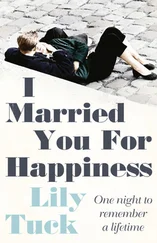Zan must shake himself loose from his shock. He dashes to the window to find that Parker has dropped a meter or so to an overhang and now slides the rest of the way, sore hand or no, down a drainpipe. “Parker,” Zan half-whispers and then, full-throated, “Parker!” as the boy falls into the street and sprints into a foggy Berlin night that falls into nothing.
Zan nearly tumbles down the stairs of the inn in pursuit. He staggers out into the street and takes off in the direction that Parker ran.
Running and stopping to listen for the boy’s footsteps, hearing nothing he runs further, but in no time comes to doubt where he is and the direction he’s chosen. “Parker!” he calls, and a light comes on in a window but he doesn’t care; he continues calling the boy’s name. After ten minutes he realizes he’s not only lost his son but himself in an anonymous part of the city with once industrial intentions, the wasteland’s only interruption being the U-Bahn station east of him.
The father peers at the U-Bahn, wondering if the boy ran there. But Parker doesn’t like the dark closed places. Zan moans, “Parker, please come back,” not loud enough for anyone to hear but God, and in the dark he turns where he stands, constantly spinning as if to create a vortex that might catch the boy in its sway. Over and over as he spins, Zan says the boy’s name, an incantation to conjure him.
At a loss, he begins to stumble back the way he came when someone hits him in the head.
There’s another blow from the other direction and Zan knows there must be at least two of them, whoever they are, maybe three or four, and he falls to the street.
On his way to passing out, memory floating away like a balloon that Viv got for Sheba once while shopping, which the girl let go just for the sensation of watching it vanish, Zan feels hands in his pockets emptying them before he closes his eyes. He whispers his son’s name and has a moment to regret it, hoping his assailants don’t hear.
Zan often points out to Viv that sometimes she thinks about telling him something and, once she thinks it, believes she’s done it. Not long before they left Los Angeles for London, she answered tearfully that maybe sometimes he just doesn’t remember her telling him.
Now lying in the street he has this thought that not only is she right and his memory fails ominously, but that in fact the reverse of what he told her is true — that what he thinks he tells her in fact he’s never said, that in fact what he thinks he’s told everyone he’s never said at all to anyone. That for months he’s imagined himself saying things that he never did: All those times, all those people from Viv to J. Willkie Brown who observed how recently he’s turned into a chatterbox, were only voices in his head made manifest in hallucinations. Really? Me? On the radio?
Suddenly it seems absurd. Suddenly Zan is convinced, lying there in the street, that like the character in his new and utterly misbegotten novel, he’s been whiplashed to some other place in time except it’s another present rather than the past; he’s been swept up and deposited in a warp of voices saying things that haven’t been said but only considered — political rants, personal observations, plans and promises stillborn, playlists of songs and those who never sing them — and that in fact nothing about his life is real anymore if it ever was, he has no son, he has no daughter or wife or house.
Some months ago, shortly before the election, Zan underwent a routine medical procedure, and lying on the table he was fascinated by the part of his brain that resisted the anesthetic even though he chose to have it and in fact would be terrified of not having it. Then, lying on the table feeling his mind resisting, he worried that — like someone who can’t sleep because he lies in bed worrying about not being able to sleep — he might not be able to go under and would remain conscious during the procedure. Not to mention the enormous conceit of believing that his will was stronger than anesthesia, Zan was caught between clinging to awareness and desiring its surrender. His last fleeting thought before the anesthesia took over was to wonder why the patient is asked to count backward from one hundred when he never gets past ninety-seven. Wouldn’t starting at ten do? Or five?
Back in the canyon, the canyon that he’s not even sure anymore he’s ever lived in, Zan would drive through pockets of sunlight that he recognized as the same sunlight from forty years before when he was eighteen years old. Driving into this light he would have the feeling that he seems to have more and more as he gets older — of the past seeping into the present and marked by the quality of a particular light when he turns a bend of the road. Light is constant, he thinks, it has no past or future but always is present, so it’s always the same light; and entering these grottos of the same light that was there so many years ago, he remembers everything that happened and who it all happened with, stalactites of light and most of all the songs, every fissure with a melody all its own.
But now in the Berlin street his unconscious mind understands that none of this about the light is true. His mind understands that light dies like everything else; it’s not the same light at all. It’s a new light from the sun or maybe a star that already has died sometime during the thousands of years that its light was en route. He understands that what’s constant isn’t light but shadow, that it’s the shadows which are the same regardless of what light casts them. Songs are more transient than light because, unlike light that bleaches the earth or sears the flesh, a song never leaves a trace except with whatever listener can or will attest to it. The listener becomes not just a collaborator with the singer, he becomes the keeper of the song, seizing possession of it from the singer; the listener knows hearing the song more than the singer can claim singing it. If light is a ghost picture that will disappear, time is a child’s game of telephone, humming at the beginning of the line a melody transformed by a series of listeners to an altogether other melody at the end — and then who’s to say it wasn’t that final melody all along?
Nonetheless, in such moments of light and song, past and present coincide. The deepest cell of memory’s catacomb is more accessible to Zan than the most shallow; he remembers more vividly the quality of light at a given moment forty years ago than the name of someone he met yesterday. Zan has become frightened by his memory’s daily, even hourly insurrections. He’s become as terrified by the prospect of dementia as he is by all the other prospects that terrify him — more, of course, because in memory lies the self’s archeological remains. Almost idly, Zan has considered some plan by which someone euthanizes him before he allows madness to consume him. But when you have children, you don’t enjoy the luxury of any melodrama other than the one you’re actually living through.
In retrospect it’s inevitable that when X’s Bloom in FutureLA is published in early 1921, no one notices. No one comments on the passages of revolutionary stream of consciousness, no one cares about the mindbending erudition or how the book proposes to sum up western civilization in a twenty-four-hour stroll.
Rather the Irish plagiarist’s version a year later, set in Dublin, receives all the attention, just as it did before history and the imagination circled back on themselves in the form of Zan’s protagonist. X’s subsequent novels go unnoticed as well, even as he’s bitterly certain that, if anything, he’s improved on the rough drafts of pretenders. Finally, with X’s rendition of a Southern novel about a man who goes crazy not knowing whether he’s white or black, the New York Times offers a conjecture, part manifesto and part exposé.
Читать дальше











